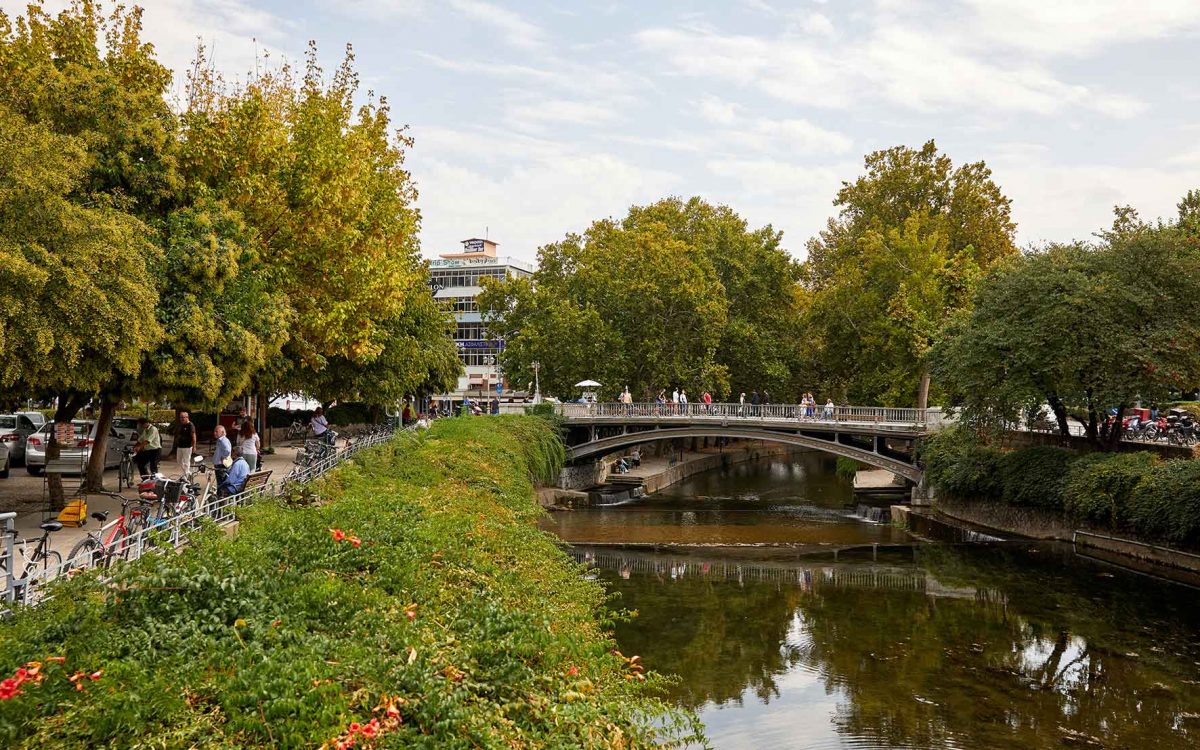What’s the deal with Trikala? This city in Thessaly is visited by local authorities, students and business people from all over Europe for a glimpse into how new technologies promote sustainable development and urban mobility.
It is considered one of the fastest developing cities in Greece, is already headquarters to several large businesses (mostly related to agriculture and stock breeding) and aims to attract companies dealing with innovation and new technologies so that they incorporate the ancient god Asklepios and the idea of wellness into their DNA.
The city is also very clean, orderly and spacious, conveying a feeling of calm and safety to visitors from the start.
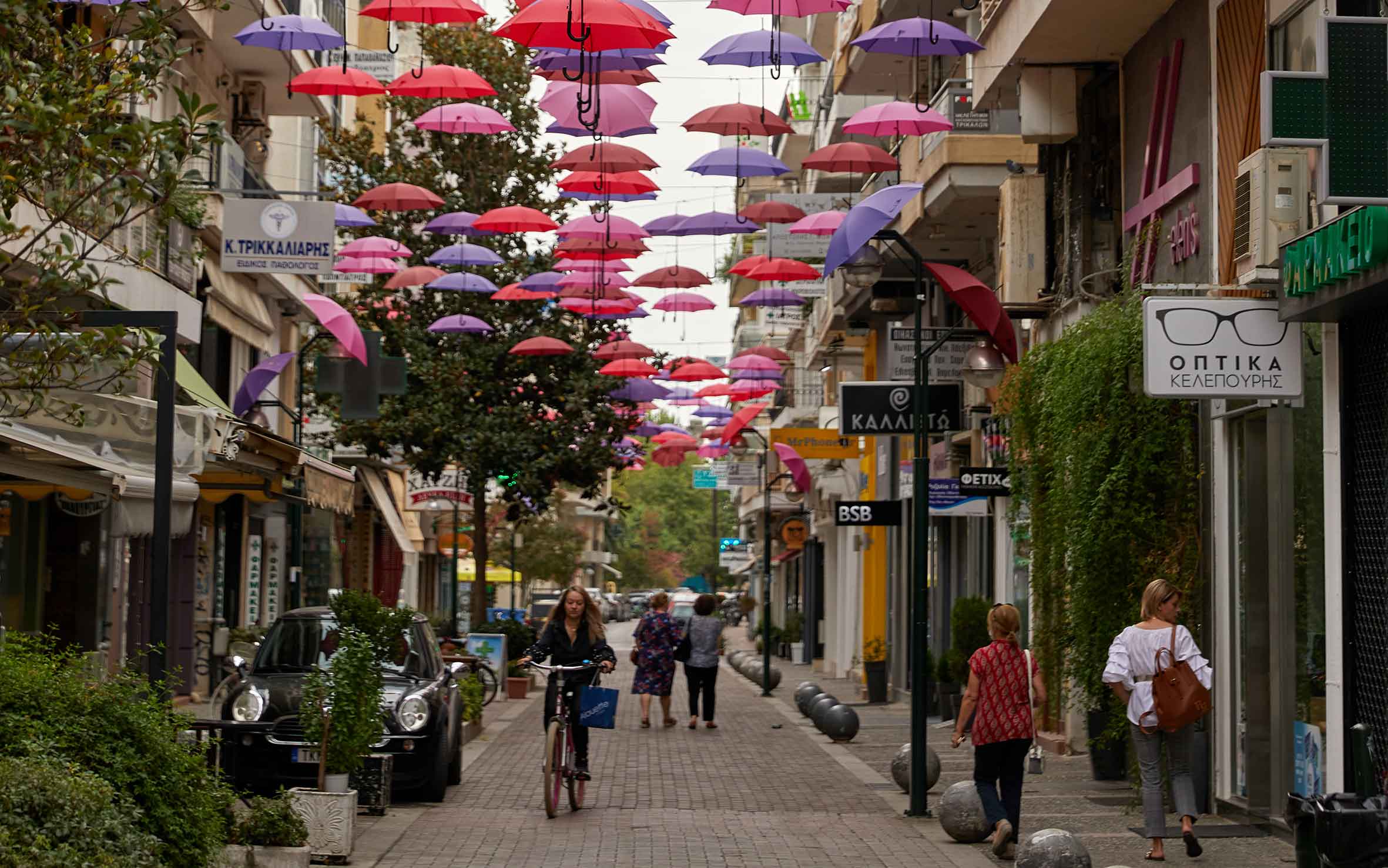
© Dimitris Vlaikos
Musical traditions, art groups, local products and gastronomy are integral parts of Trikala’s identity, forming an appealing combination. Yet how much has the quality of life changed from the times of the legendary Asklepios, who was, according to tradition, born here, compared to the present day? One possible answer could be that the quality of life is being updated in a significant and profound way because, in the heart of smart sensors, driverless buses, sustainable development and ecological agriculture, there is always man.
People here are cheerful, polite, welcoming, and living in harmony with their surroundings. It could be argued that the people of Trikala are its most powerful marketing tool.
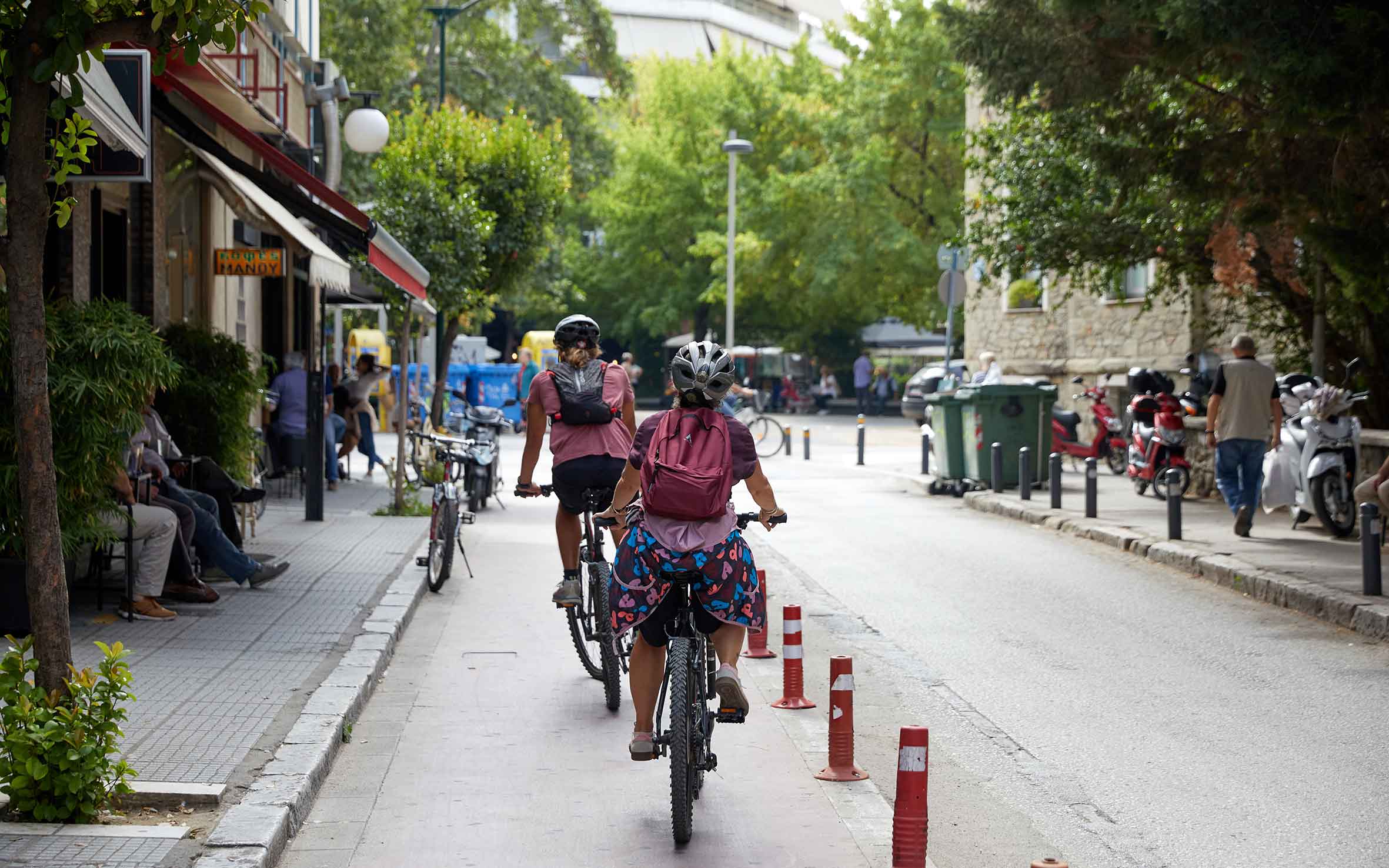
© Dimitris Vlaikos
Life flows like water
Walking through the center, everything seems to be friendly, both towards locals and visitors alike. Spacious pedestrian streets facilitate the movement of people on foot and on bicycles; in fact, the bicycle is an important means of transportation, with large parks offering cultural events and opportunities for sports. Special walking, running and cycling routes are combined with renovated hotels, modern hospitality services and a rich gastronomic scene in a city that has not been abandoned by its youth. On the contrary, they keep it fresh and lively.
Trikala is also home to a wealth of history. Ancient Trikke was the birthplace of god Asklepios, which is why its Asklepion – a sanctuary of worship and health treatments – was particularly famous. Sections of it survive today, on the main Stefanou Sarafi avenue.
To the south of the ancient city flows Lithaios, a tributary of the Pineios River, and mythological son of Lithis. A total of four rivers flow through the modern city, but Lithaios is the undoubted protagonist. Images of the river and its ten bridges connecting the two banks, and the tall plane trees creating playful shadows in the water below are romantic picture postcard scenes.
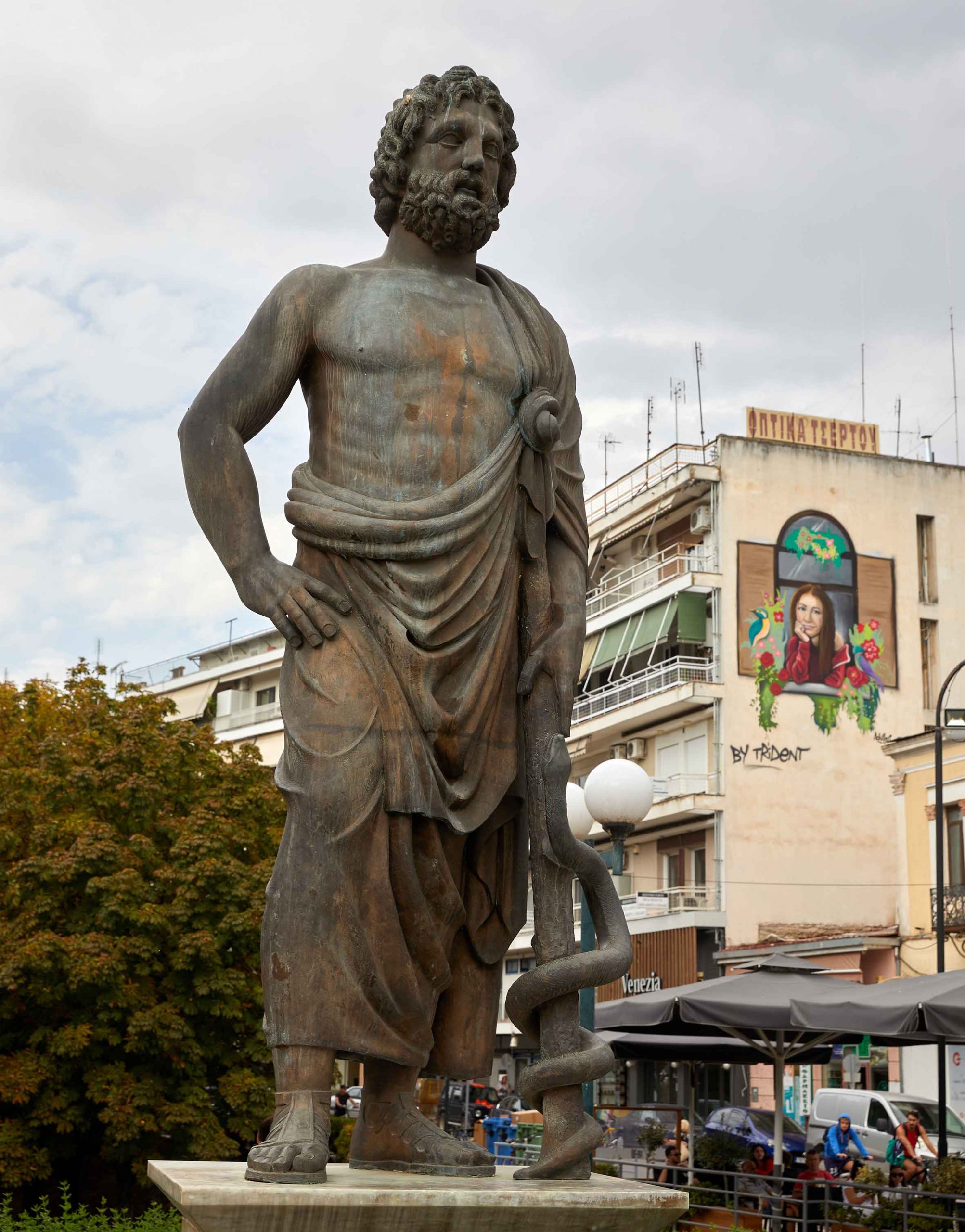
© Dimitris Vlaikos
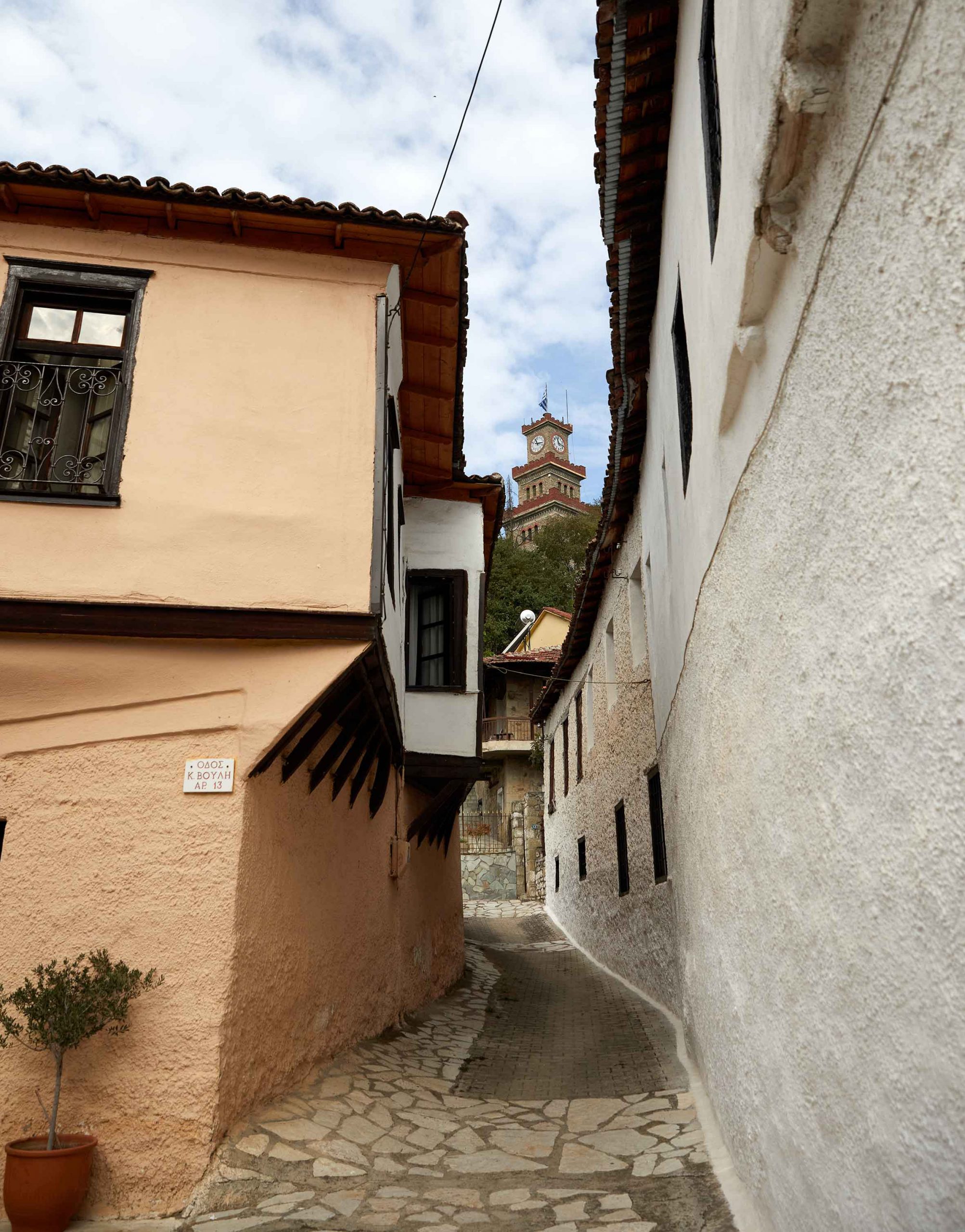
© Dimitris Vlaikos
The river itself, and its verdant vegetation, is a vital breath of fresh air and greenery in the city. The youth sit and chat the day away on the small wooden deck, from where you can rent small boats for a ride on the river, while couples admire the view and the city’s dogs enjoy walking and playing on the grass. The everyday quality of life is a reference point in this urban routine, where the word “good” always meets “living.”
The central bridge built in 1886 by French engineers is the most beautiful. A trademark of the city, it connects Asklipiou Street (the largest commercial road) with the central square of Iroon Polytechniou. Crossing the bridge heading north, we enter the traditional Varousi settlement and the Manavika, an area featuring tavernas and ouzeries, while moving south brings us to the more modern, urban part of the city, where you will find a plethora of shops, the town hall, cafes, schools and conservatories.
THE ROUTES
NORTH: A CITY WITHIN THE CITY
The hill of Profitis Ilias, with the chapel dating from 1896, is ideal for walking and sports. A brief bicycle ride will offer impressive views of the city, of the imposing rocks of nearby Meteora, and the Gate and Loggaki.
Heading downhill from the chapel, there are many dirt paths to choose from and test your strength. We followed Alexandros, our guide from Trekking Hellas Western Thessaly (tel. 24310-87964), who guided us to Varousi, to the base of the Byzantine Castle. This is the only traditional settlement in Thessaly located inside a city, and its picturesque side streets evoke the feeling of a bygone era. Several of the old houses have been restored and re-inhabited, and are wonderful examples of local architecture. For instance, we visited the home of Giorgos Klidonopoulos, president of the Varousi Cultural Association who invited us to his beautiful house, which boasts impressive lilac hues on the inside and outside walls.
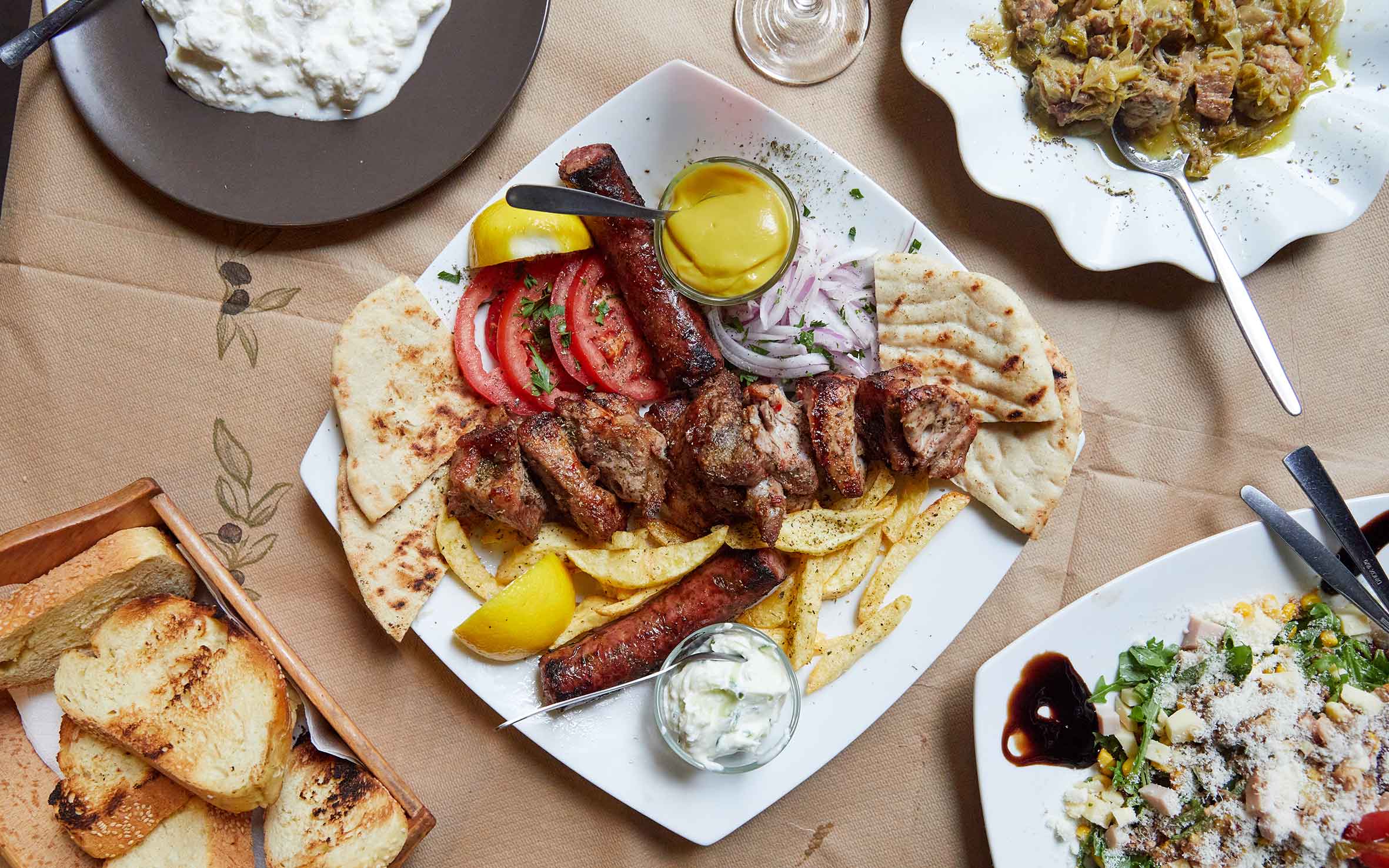
© Pagona Lapsati
Cycling the settlement’s side streets near Agioi Anargyroi we come across the steps leading to the Byzantine Castle, where we visit the Clock Tower to admire endless views on the Thessalian plains.
We return our bicycles and are ready to appease our hunger at Manavika – the city’s former vegetable market that today is filled with various tavernas and ouzeries. In Agias Eirinis square we “encounter” Tsitsanis playing the bouzouki in his balcony. Of course, we are referring to the famous wall painting adorning this narrow street, the attraction of the neighborhood.
Another local celebrity is the dish itself, sausage and leek – try it at any of the restaurants here. We were impressed by the sautéed pork with leek that we tried at “Katogi,” a well-known spot for the city’s gourmands.
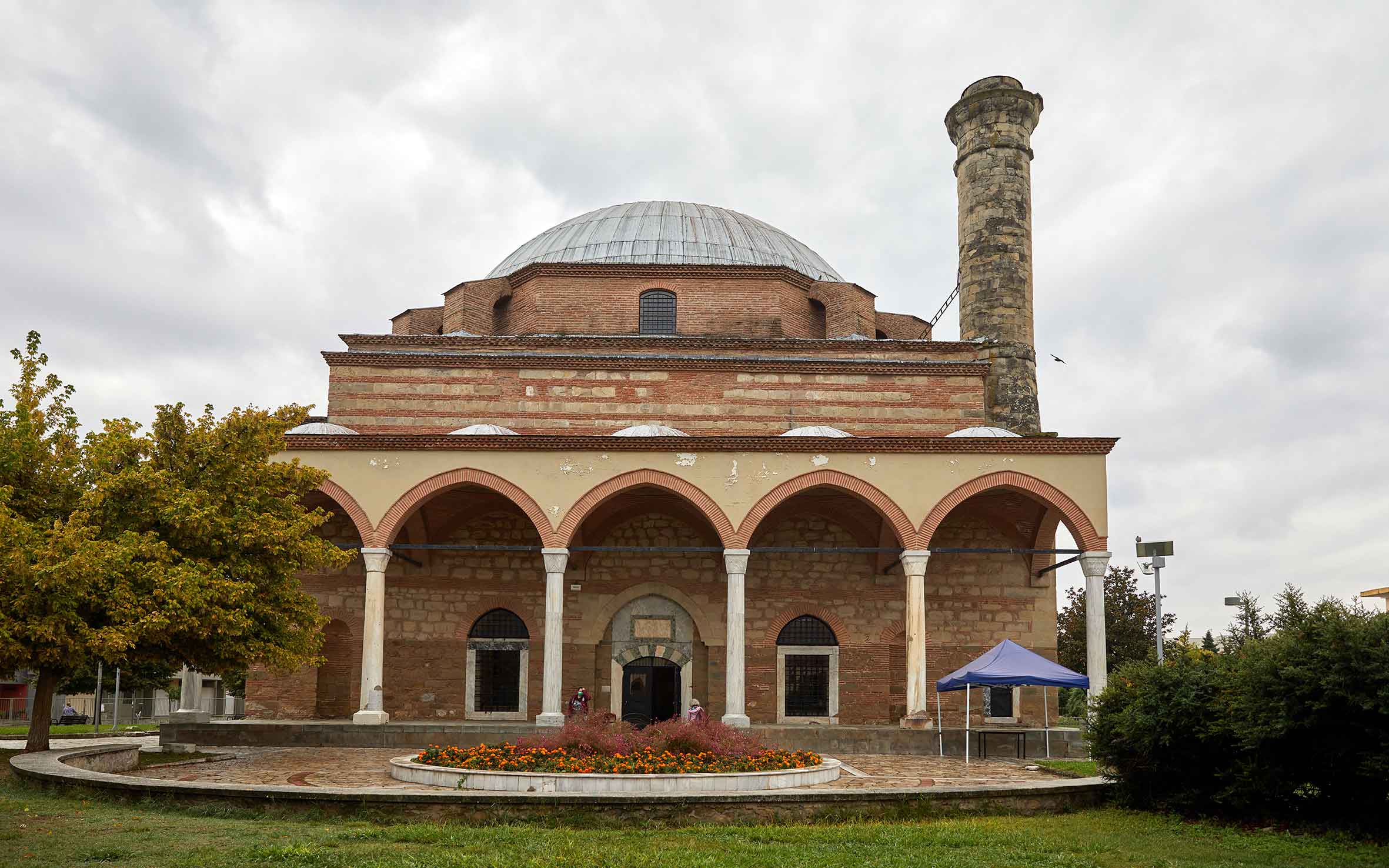
© Dimitris Vlaikos
SOUTH: CENTURIES OF HISTORY IN ONE SPOT
Kursum Mosque, or the Osman Sah Mosque, dates from 1566-67 and is a characteristic example of Ottoman architecture, the only work by the great Turkish architect Sinan Pasha (1490 – 1588) in Greece. A protected UNESCO World Heritage Site, its impressive 22-meter dome enchants visitors, as no supporting columns are visible from the inside.
South of the mosque is located the Osman Sah Mausoleum and as you walk towards the city center, you come across the Church of Agios Konstantinos and the Twin Ottoman Baths, which features separate entrances for men and women. It was restored in 2006, as it was buried under the additions that were constructed in 1893 to house the old city prisons. These interventions led to the destruction of the impressive domes and many architectural and decorative details, such as the fountains, and some of the galleries.
Info
The Kursum Mosque, the Twin Ottoman Baths and the Byzantine Castle operate everyday 09.00-15.00, free entry, Tel. (+30) 24310.76647.
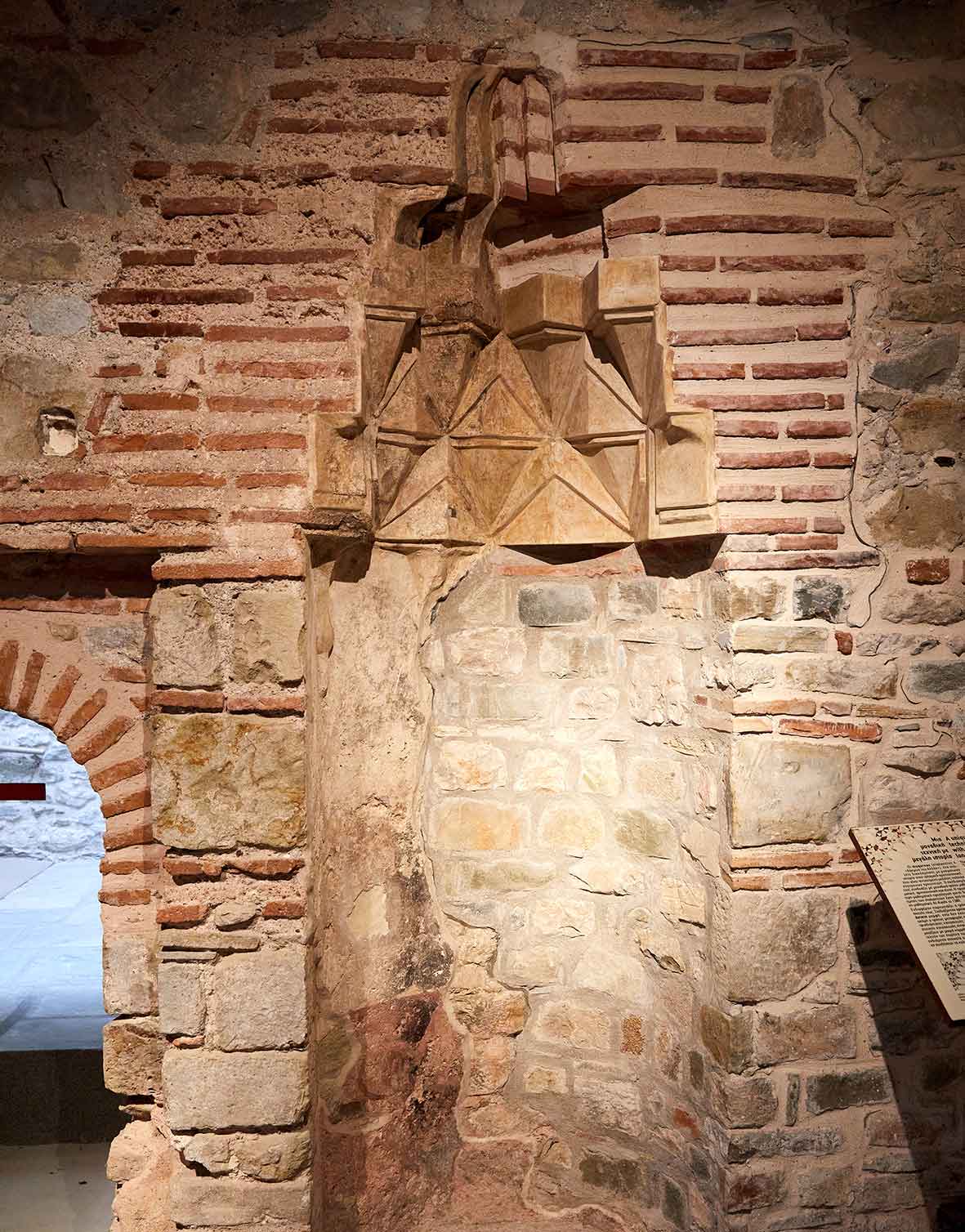
© Dimitris Vlaikos
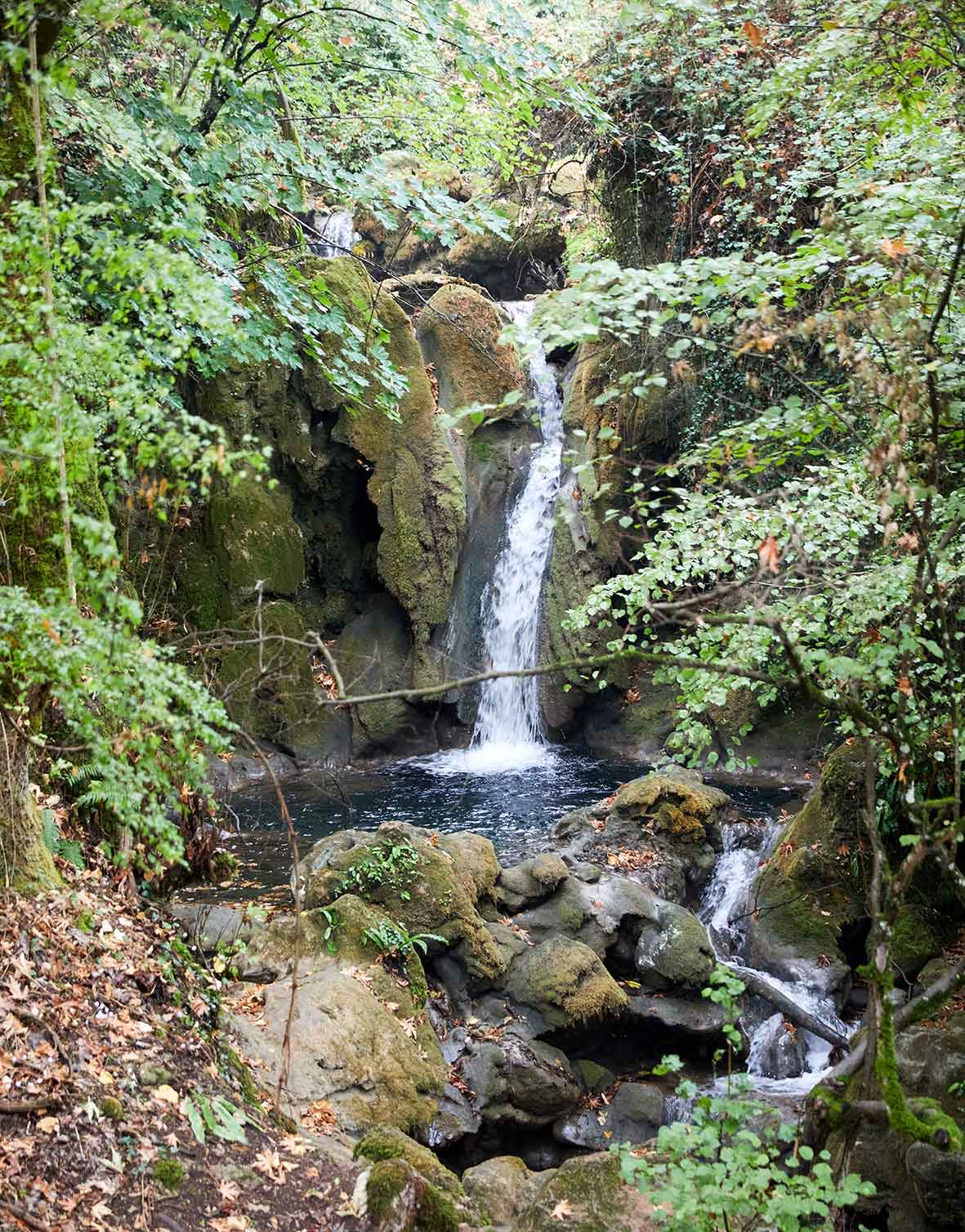
© Dimitris Vlaikos
On the second floor that was built to house the prison cells, you will find the Tsitsanis Museum dedicated to the great musician (temporarily closed due to maintenance works).
The musical tradition of Trikala will take you by surprise. The city boasts five conservatories, two music colleges, one music school, a Philharmonic, and the famous Trikala Choir established by female conductor Terpsihori Papastefanou. Tsitsanis, Kaldaros, Dirvos, Samoladas, Christos Kolokotronis, and Mitropanos have all been connected to the city and its history.
Stelios Karageorgios, artistic director of the Tsitsanis Museum, explains that after the liberation in 1881, the well-off Greeks from central Europe settled here and offered a musical education to all the residents of the city.
The museum hosts an experiential exhibition that explores the life and musical development of Tsitsanis. Be sure to pay it a visit, but first confirm when it will be open to the public again.
Info
Tsitsanis Museum: Tel. (+30) 24310.77977
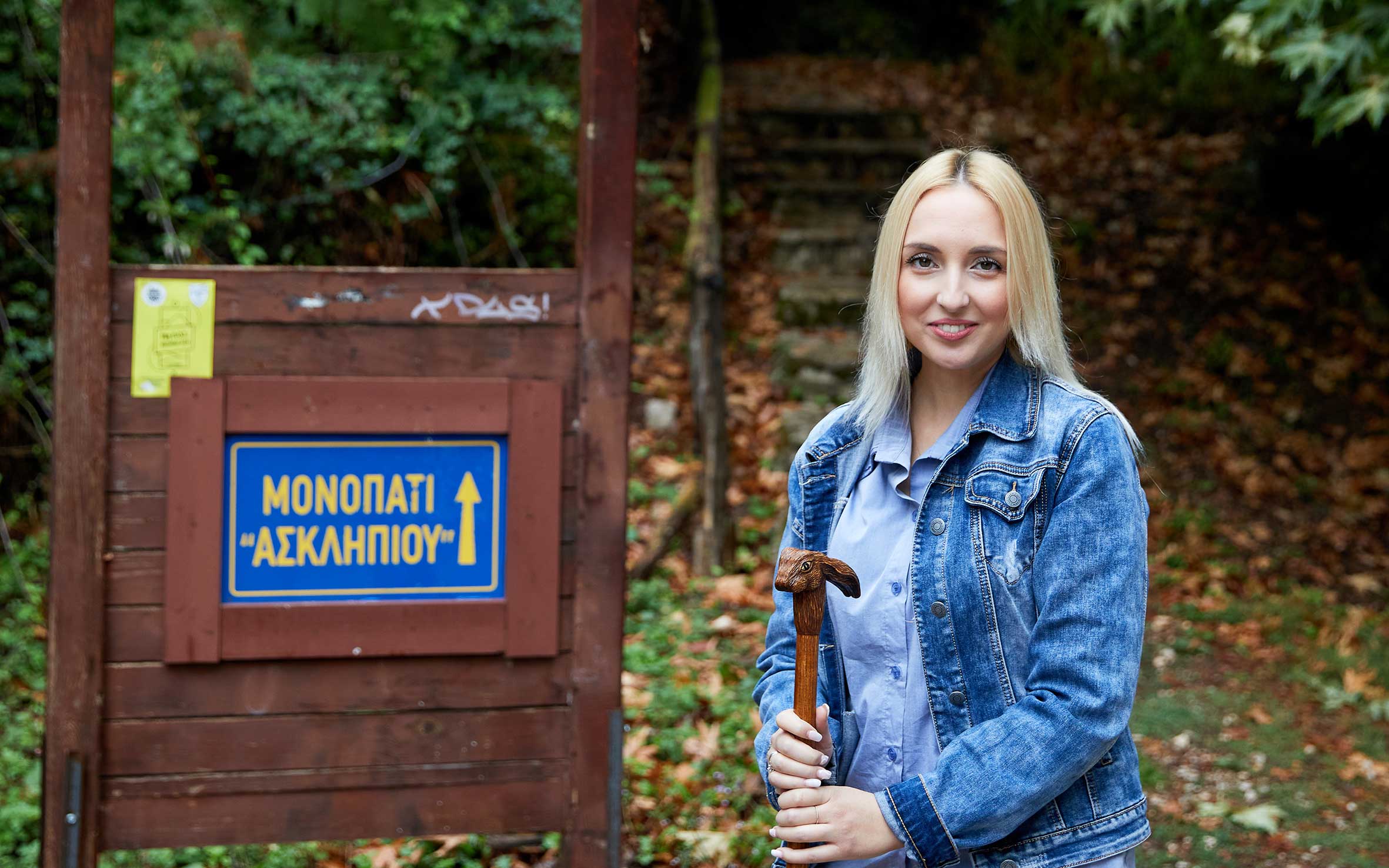
© Dimitris Vlaikos
Walking in the footsteps of Asklepios
For a brief excursion beyond the city of Trikala, exploring in the footsteps of the god Asklepios, be sure to visit Gorgogyri (19km away). According to historical sources, the footpath next to Kefalopotamos river represents the route followed by the ancient god of medicine to collect herbs. There is relevant signage at the beginning of the footpath, though we are accompanied by historian Konstantina Dakoula and wood sculptor Angelos Patsiatzis, who have founded a Social Cooperative Enterprise that aims to showcase the footpath with tours and to ensure its protection.
The first section (1.5 km) is easy and accessible – you will come across four waterfalls and natural pools. The rest of the way to the top requires special equipment, as there is a steep incline and it can get very slippery at times. On route, you will come across chamomile, linden tea, oregano and thyme-oregano, the natural growing tea, wild daisies and roses, madder, Christmas rose, pilewort and lemon balm.
Take note that ten water mills also operate in Gorgogyri, offering clearing services for carpets from all over Greece.
As you leave Gorgogyri, stop at Prodromos village to stock up on sausages from Koutelidas.
Info
Koutelidas: Tel. (+30) 6977.984054.
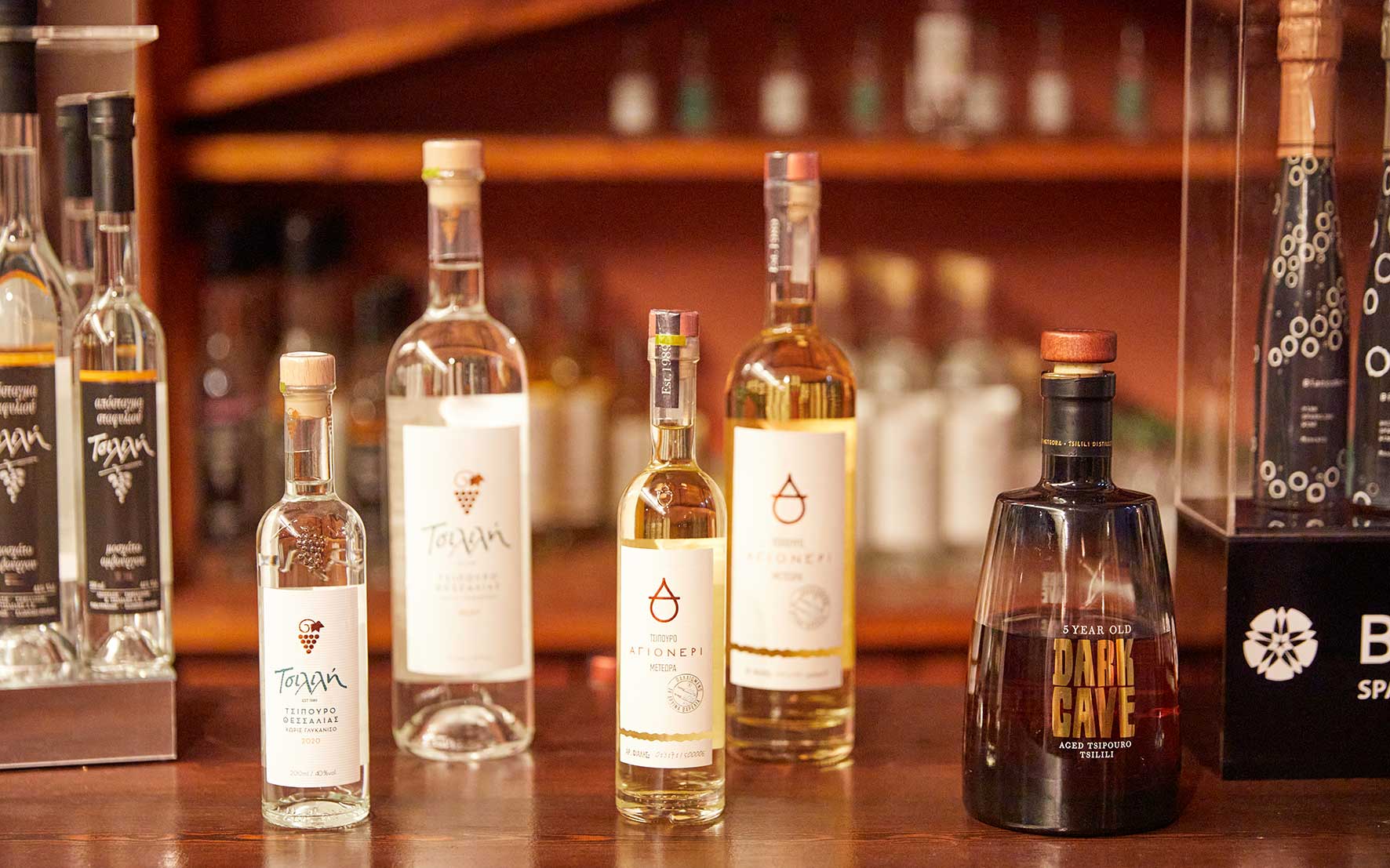
© Dimitris Vlaikos
Glasses filled with tsipouro
Located in Paxa Trikalon, a visit to the Tsilili winery should not be missed in October, the month of tsipouro. It first operated as a distillery in 1989 and, being the first to procure a bottling licence, its geographical provenance was guaranteed: tsipouro from Thessaly.
The winery was added in 1994 and the main vineyards are in the area of Theopetra in Meteora. The company was also the first to offer aged tsipouro: Agioneri (brief ageing) and Dark Cave (aged for at least 5 years in oak barrels). You may also try single variety distillates from whole grapes, featuring intense aromas.
Info
Tsilili winery: Tel. (+30) 24310.85885.
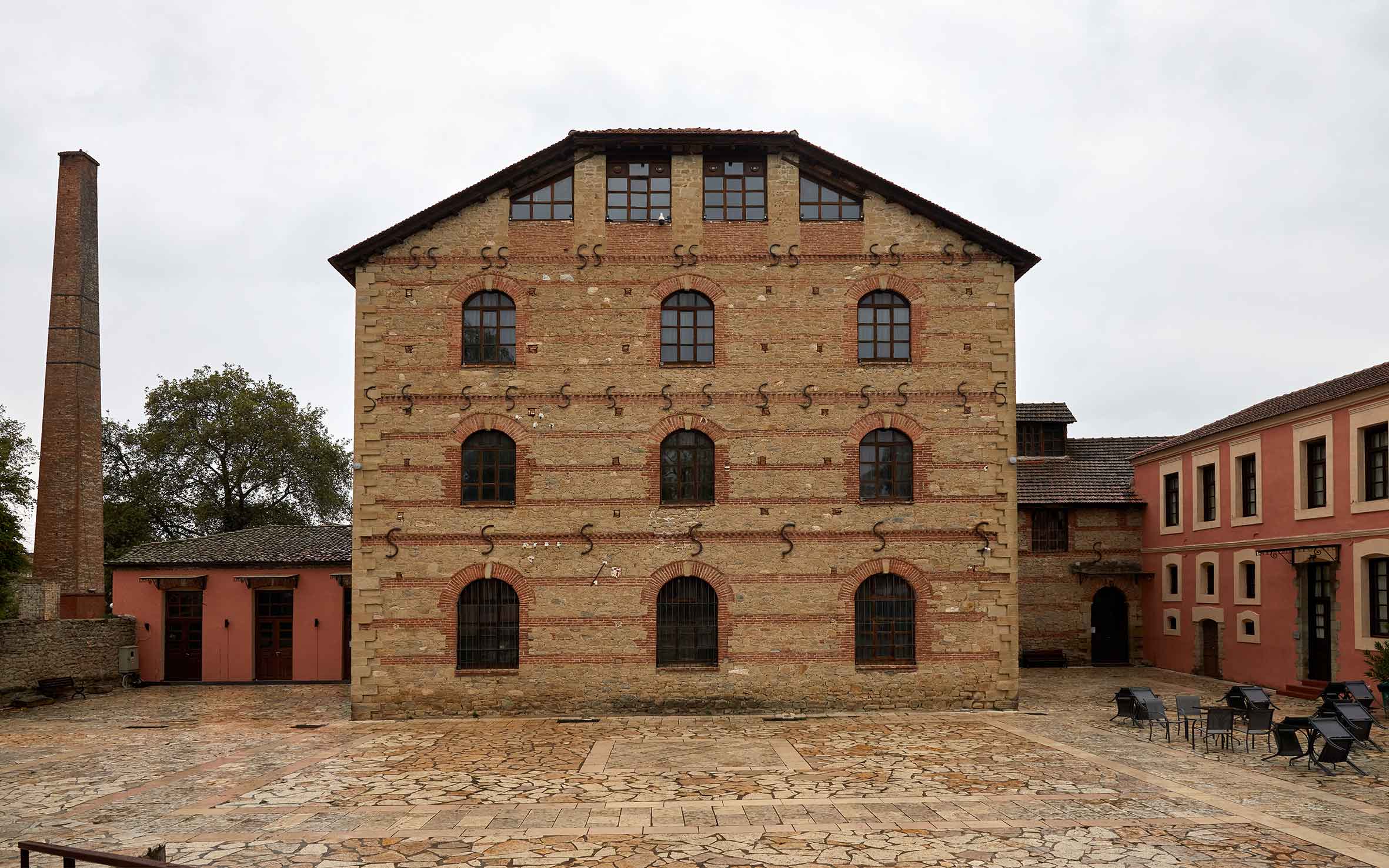
© Dimitris Vlaikos
Matsopoulos Mill: Industrial Heritage
A four-story stone structure, the Matsopoulos Mill is one of the most important industrial landmarks in the Balkan area, constructed in 1886 and in operation until 1994. It was bequeathed to the city by its owner, Ioannis Matsopoulos, who was not from Trikala but wanted to be a benefactor to the city in which he lived. Visitors have the opportunity to tour the interior and see the original machines, offering a glimpse into the industrial production process of flour at the end of the 19th century.
The smaller structures in the surrounding area host a theater, cinema, and workshops. During the Christmas season it is transformed into “The Mill of the Elves” and hosts seasonal cultural activities organized by the Municipality of Trikala, attracting visitors from all over Greece.
Info
Tel. (+30) 24310.20000/20090, mylosmatsopoulou.gr.
The Mill is open for visits everyday, 09.00-15.00. Because they are currently conducting works to set up the Mill of the Elves for Christmas, be sure to telephone in advance to confirm the opening hours.
Notebook
TRANSPORTATION
Trikala is located 334 kilometers north of Athens* (3 hours 45 minutes). For fuel and tolls estimate about 70 euros one way. Thessaloniki is 213 kilometers from Trikala (2.5 hours), with the cost of fuel and tolls amounting to 40 euros one way.
* For those coming from the south, follow the Lamia-Karditsa road and enter the Xiniada-Trikala route via the circular intersection at the 24th kilometer.
ACCOMMODATION
Trikala River House: (Vironos 2, tel. 24310-32532, theriverhouse.gr). Modern, with light decor, discreet service, views of the river, and on-site parking. It offers breakfast at the Panellinion Hotel (24310-73545), also owned by the Georgiou family, in Riga Feraiou square. Double room with breakfast starting from 60 euros.
Lithaion Hotel: (Othonos 16 and Garibaldi, Tel. (+30) 24310.20690. Fully renovated, next to the river. Double room with breakfast starting from 60 euros.
Gallery Art Hotel: Tel. (+30) 24310.63990, galleryarthotel.gr. Located a few minutes from the city center, with an emphasis on artistic decor. Double room with breakfast starting from 80 euros.
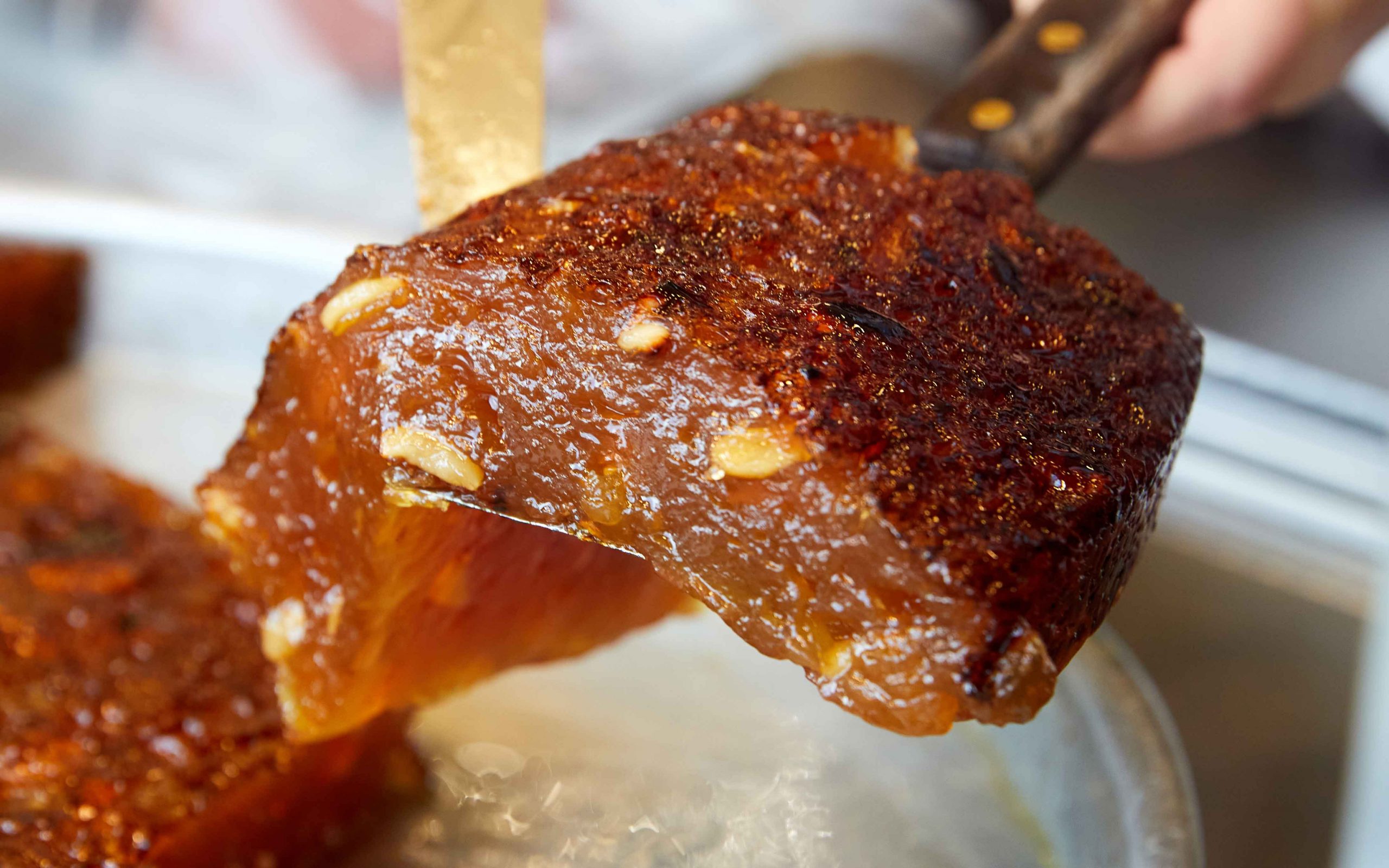
© Pagona Lapsati
FOOD – DRINK
The day begins with specialty coffee at Retous (Tel. (+30) 24310.63888), operating in the space of a former photoshop. For brunch or light lunches, the place to be is IVY (Kapodistriou 18A, Tel. (+30) 24316.00847), a modern environment that resembles a garden. In a similar vein, Vesper (Karanasiou 9, Tel. (+30) 24313.04291) is housed in a beautiful stone building.
For more traditional flavours head to the Manavika area, where they serve local meats in generous portions at Palia Istoria (Tel. (+30) 24310.77627). At Katogi (Tel. (+30) 24310.20150) try the sautéed pork and leek, grilled meats, local cheese, and tomato goat stew. Picnic (Tel. (+30) 24316.00753) offers quality street food such as burgers prepared with fresh local produce, while Klimataria (Tel. (+30) 24311.01576) is a meze taverna which also offers live music.
Continue with a cocktail at Tankoo (Stefanou Sarafi 6) housed in the premises of the former hammam baths. Last stop at Birologos (Apollonos Shopping Center, Tel. (+30) 24311.01918). A simple atmosphere with tables that resemble desks, here you will enjoy a variety of beers from all over the world as you listen to rock music.
MARKETS
Trikala is known for its meats, its cheeses and its desserts. The butcher shops look like boutiques: tasteful and clean, they appeal to your senses and make you hungry. The market operates daily and has much to offer: local producers sell their produce on organised stalls under quaint awnings. Every area has its grocery stores.
At Zarogianni (Miaouli 16, Tel. (+30) 24310.39659) you will find homemade PDO kaseri cheese (made with milk from Karagouniki breed goats) as well as select products from Greek producers depending on the season – they pay much attention to quality of their food here, everyday. Products that stand out include, Barda peanut butter, Meteora mushrooms, and Bakali honey.
Source select galotyri, anevato and feta cheese from Papia (Tel. (+30) 24310.29363), as well as spoon sweets by Vasiliki in Mesohora.
Finally, you cannot leave Trikala without some halva. You must try the halva at Boulogiorgos (Asklipiou 62 tel. 24310-70112), Gounari (Pylis 74, Tel. (+30) 24310.34991) and Voutselas (Kondyli 65, Tel. (+30) 24310.24351). For something more contemporary but also local, try a piece of spatula (walnut cake with creme patisserie) at Pallas (Vironos 4, Tel. (+30) 24310.26914).

